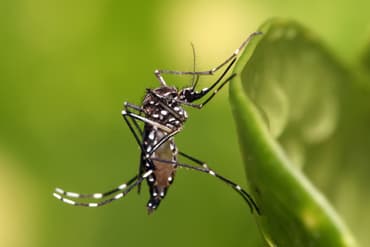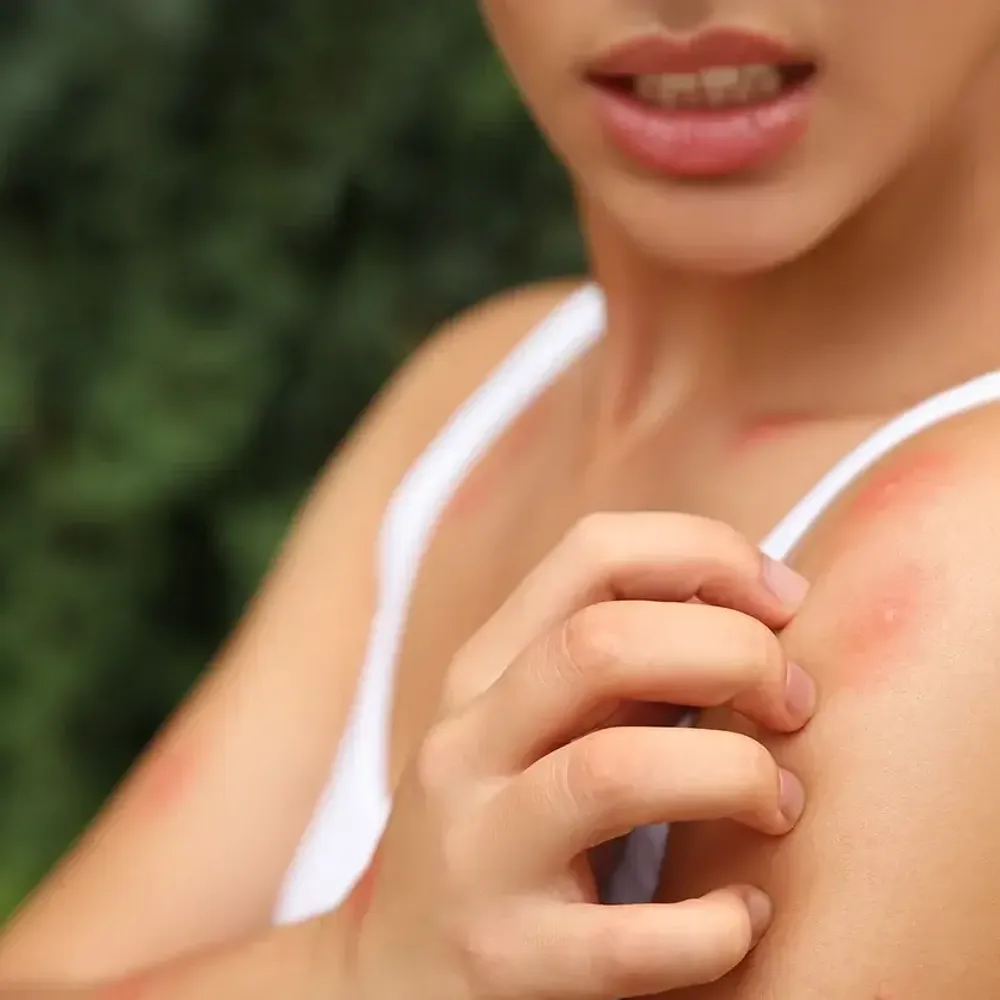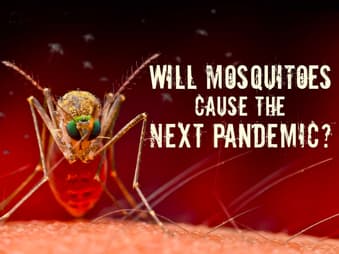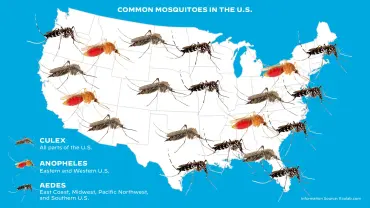-

Thermacell® Introduces the E65 Rechargeable Mosquito Repeller + Fast Charging Dock to Extend Your Time Outdoors
Mar 18, 2025 -

Buzzing Threats: The Impending Peril of Mosquitoes in North America's 2024 Season
Aug 5, 2024 -

Buzzing Threats: The Impending Peril of Mosquitoes in North America's 2024 Season
Aug 5, 2024

Why Mosquitoes Bite
First of all, let's set clarity, mosquitoes' main food source is plant nectar. However, females need the protein found in blood to grow their eggs - hence only females will bite! There are over 3,500 species of mosquitoes, some prefer humans, other mammals, or even reptiles.
Our Body’s Reaction
You might be wondering, why do mosquito bites itch? Well, mosquitoes' saliva contains proteins, which our bodies identify as foreign substances. In response, your body’s immune system is triggered and releases histamines which cause itchiness and inflammation. Some people may have a more severe response, and some may not have a response at all depending on their body's unique response.
Why do some people suffer more then others?
It all comes down to genetics! Your likelihood of getting bitten comes down to the level of carbon dioxide in your body and the way your skin smells. While no one is completely immune to mosquito bites, these factors make some more prone to bites than others — and along those lines, some folks have worse reactions to the bites.
While some folks simply experience a small red bump, others are more allergic to the saliva of mosquitos and can end up with large welts or even experience shortness of breath and anaphylaxis. If that happens, you should seek medical attention immediately!
Skeeter syndrome refers to a significant allergic reaction to mosquito bites. Although most people will have some form of reaction to a mosquito bite, it is usually just an annoyance. However, people with skeeter syndrome are very sensitive to these bites and may develop a fever.
Although the typical symptom of a mosquito bite is a small red bump and itching around the bite.
However, skeeter syndrome causes a person to experience more serious symptoms. The bites tend to swell up to a very large size, and the person may also have a fever. The reaction tends to build up quickly, usually within a few hours.
Relief Remedies
First and foremost, don’t scratch! A tale as old as time… scratching your bug bite will just make it itch more. But more importantly, it increases the risk of bacterial infection. After you get bit, make sure to wash the area with soap and water to remove any saliva or bacteria. Once you're all cleaned up, you can apply ice and antihistamines to the bite in order to reduce swelling and itchiness. If the area looks infected, apply antibiotic ointment and a bandaid. Other things that help:
Ice and elevation
For a bite that causes a reaction in one small area of the body, start with the simplest form of treatment.
Elevating the area and placing an ice pack on it may help reduce inflammation, soothe the sensations of pain and itchiness, and reduce redness.
Oatmeal
Applying a mixture of cooked oatmeal to the area may also help reduce symptoms because of their anti inflammatory properties.
Antihistamines
If a bite does not respond to simple home remedies, some over-the-counter (OTC) medications, like Benadryl may help a person feel better much faster.
Topical steroids
Some topical corticosteroid creams may also help temporarily soothe the reaction to a mosquito bite. OTC medications such as hydrocortisone (Cortaid) should be enough in most cases.
Immunotherapy
Although the symptoms of skeeter syndrome are manageable for most people using OTC remedies, more serious cases may require medical treatment.
Allergen immunotherapy, or allergy shots, is a more permanent solution to severe allergic reactions from bug bites such as those from mosquitos.
Allergy shots work similarly to vaccines. An allergist will inject the person with very small amounts of a particular allergen. By increasing the amount of the allergen in each shot over time, immunotherapy may help the body build its own defenses against the allergy-causing proteins in mosquitos.
Source: Medical news today
Categories: Questions & Answers
Related Posts

Buzzing Threats: The Impending Peril of Mosquitoes in North America's 2024 Season


